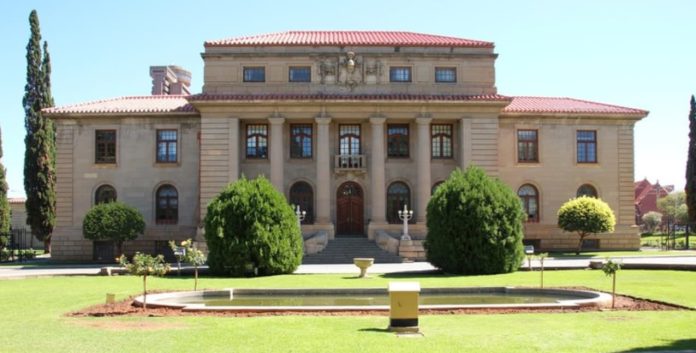
Six directors of a law firm under investigation for misappropriating more than R25-million from their clients have been suspended from practice for six months while the Legal Practice Council (LPC) investigates their role in the matter.
- The Supreme Court of Appeal has suspended six directors of law firm Chueu Incorporated Attorneys.
- The firm is under investigation for misappropriation of over R25-million of trust funds.
- The directors’ defence that they were not in control of the firm’s finances was no defence at all, the SCA ruled.
- The court also had harsh words for the way the Legal Practice Council conducted itself in the case.
Previously the Limpopo High Court only suspended Chupjana Lekolooana Chueu, the managing director of the firm, who was in charge of finances.
But the Limpopo Legal Practice Council appealed against the ruling in the Supreme Court of Appeal (SCA).
The SCA has now ruled that all the directors of Chueu Incorporated Attorneys are responsible for its finances. They are: Thabo Milton Chueu, Brian Kingsley Keabetsoe Koopedi, Charles Kgomotso Tsoku, Sekgapinye Tsetsewa, Phaledi Raesibe Gwangwa and Pascalia Nonhlanhla Mathibela.
The other directors had claimed they played no role in the accounting and financial affairs of the firm.
This was a dereliction of their duties as directors and their defence “was no defence at all”, the SCA has ruled.
Judge Caroline Nicholls, who penned the judgment, said when the Limpopo LPC first approached the High Court in October 2021, the firm was facing a final liquidation application.
The LPC sought an order that all seven directors be suspended from practice, pending the finalisation of an investigation into the missing money.
The High Court ordered that only Chupjana Lekolooana Chueu, the managing director, be suspended for 12 months.
The LPC was then granted special leave to appeal to the SCA.
“At the heart of this application is the question of liability of all the directors of the law firm, when the financial misconduct has allegedly been committed by only one of the directors,” said Judge Nicholls.
“Legal practitioners are obliged to conduct themselves with the utmost integrity and scrupulous honesty. A lack of trust in the legal profession goes hand in hand with the erosion of the rule of law.”
The Judge said at the time when the High Court application was launched, the firm was handling about 6,000 files with a gross value of R6.2-billion.
It specialised in personal injury matters.
It had four offices, which operated independently of each other, and the directors operated out of these different locations.
During 2020/21, the LPC received complaints from members of the public that the firm had represented them in litigation with the Road Accident Fund (RAF), collected money from the fund, but failed to pay it over.
The amounts ranged from R377,000 to R1.2-million.
Another client said she had a RAF claim of R8.1-million which the firm had allowed to lapse.
In addition, the LPC was informed that the RAF had complained that it had mistakenly made a duplicate payment to the firm of R29-million, which had never been repaid.
By the time the LPC charged the directors, it had received and investigated 26 complaints. Investigations revealed that at least R25.8-million in trust funds could not be accounted for.
But the directors did not attend the disciplinary hearing to answer the charges.
In the High Court, the other directors had claimed they were merely “salaried employees”, and that they had been kept in the dark by Chueu. Most claimed they had already resigned.
The High Court ruled that the LPC had made “extremely general allegations which did not refer to the other directors at all” and thus only ordered the suspension of Chueu.
Judge Nicholls said every director had a fiduciary duty towards a company.
“To plead ignorance of financial matters when faced with allegations of misappropriation does not absolve a director.
“It has been emphasised over the years that legal practitioners cannot escape liability for keeping the books of account or the control and administration of the trust account”.
The judge said the directors had been “constrained to concede” that the concept of a “salaried director” was not found in the Companies Act nor the Legal Practice Act.
She said the court was not, at this stage, determining whether the directors were fit and proper to practice as attorneys, but whether they should be suspended, pending that inquiry.
“On the facts of this case, there can be no doubt that the offending conduct of the firm has been established.
“On their own version the respondents, by playing no role whatsoever in respect of the accounting and financial affairs of the firm, were in dereliction of their duties as directors.”
Granting the six-month suspension order, Judge Nicholls said, however, that the LPC was not entitled to its costs.
She referred to a paragraph in the notice of appeal in which the LPC had referred to the lawyers as “thug-like practitioners, who continue to engage in subterfuge, whilst obfuscating and detracting everyone’s attention from the fact that they have grossly brought the profession into disrepute through their unlawful thieving conduct”.
Such language, the judge said, “ill befits the watchdog of the legal profession and has no place in a notice of appeal”.
Judge Nicholls also said the court had been unnecessarily saddled with a record of 1,472 pages “put together in an entirely haphazard fashion”.
“The LPC is the regulator of the profession. Of all litigants, one would have expected assiduous compliance with the rules of court.”
Published originally on Groundup | By Tania Broughton

